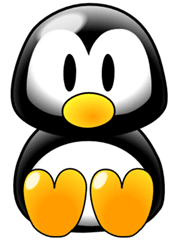Knee-deep into my memoir (some 50,000 words now), I've been thinking about the idea of what it means to "tell the truth." Immediately, the title of an Emily Dickinson poem comes to mind: "Tell all the Truth but tell it slant." Perhaps that's what James Frey was thinking--a slanted approach to truth-telling--when he made the conscious decision to call A Million Little Pieces, his fictional story, a memoir. Let's give credit where credit is due. Frey is NOT the first to play fast and loose with the real vs. fiction idea.
In 1983, the forger Konrad Kujau (in partnership with journalist Gerd Heidemann) published the "newly discovered" texts which would make up The Hitler Diaries. For this quickly debunked hoax that was originally praised as authentic by WWII historian Hugh Trevor-Roper, Kujau received nearly ten million marks. U.S.-born biochemist Margo Morgan wrote her memoir about a Midwest farm woman who magically appeared in Australia and went on a "walkabout" with Aborigines in Mutant Message Down Under (1994). The book sold to HarperCollins for $1.7 million. After great pressure from Oprah and Aboriginal tribes, she later resorted to the memoirist's ultimate admission of wishy-washiness: "What's true for me may not be true for you." My favorite literary hoax, though, is The Education of Little Tree (1976), supposedly the autobiographical tale of a "Cherokee orphan." It was eventually proven to be written by Asa Earl Carter, a KKK member.
Prior to starting my memoir, I worried that the real challenge would be confessing to and painstakingly detailing dysfunctional behavior (doesn't that sound a bit less nasty than "addiction"?). To my surprise, it's this shifty truth idea that's made things difficult. Now I'm not making up characters or scenarios like these other books did, but the obligation to tell the truth, to get it right, to pin down the facts like a Monarch butterfly beneath museum glass, feels strangling. I normally don't suffer from writer's block, but with this project, I find myself staring at a blank computer screen and wondering if a subjective truth is any type of truth at all.
So how do I ultimately handle it? My book is slowly becoming a meta-memoir, a tale in which I chronicle key moments of my life, but then I pull back and talk about what it means to try to chronicle key moments of my life. It's strange, I admit. At one point, I give myself the third degree in a self-interview. I also tell the whole story chronologically backwards. But that's the way my life has always been. It's the truth. Slanted.
Friday, April 25, 2008
Subscribe to:
Post Comments (Atom)

No comments:
Post a Comment